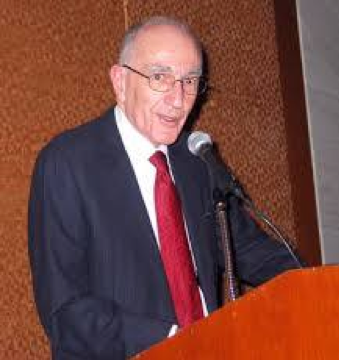
Obituaries usually begin by noting the personal, academic and professional accomplishments the deceased accumulated during their life time. Philip accumulated many. But I believe the Phillip I knew would be happier with also being remembered in a somewhat more personal manner.
Philip was a deeply passionate man. He was passionate about ideas, good fiction, poetry, art, teaching, and supervising. He would never shy away from discussing difficult issues of the day and offering his own psychoanalytically informed opinion. He enjoyed pushing his supervisees to engage with him about the mind, their patient’s, their own, and his. Even for an experienced clinician this could be quite challenging. But in the end, it was a mind-expanding experience. He was passionate about chocolate, especially chocolate treats from La Maison Du Chocolat around the corner from his office on Madison Avenue, just south of 79th street. It was a joy to watch his face beam with pleasure as he savored each bite of a rich, luscious truffle. And I mustn’t forget Philip’s favorite cocktail, a very dry Grey Goose martini…with extra olives. Phillip had great taste.
For a person who was as successful, scholarly, well read and published-Philip authored over 60 papers and three books- and so sought after as a mentor and as an analyst, I frequently found him to be unassuming. But he would not shy away from thoughtful discussions or from expressing his strongly held beliefs. I know some may have found him difficult and perhaps argumentative at times, but that’s to be expected from a passionate person.
If you were fortunate enough to be respected, admired, or better still loved by Philip, you were one of the lucky ones. I knew him as a man who would go the extra mile to help those he cared about with their writing and their careers. He took pleasure in seeing his friends and colleagues succeed. In his last years as he tired a bit more easily and became more protective of his time, he began turning down requests to speak and write. One could sense his sadness and regret at having to turn down and disappoint those whose work he admired and respected. In fact, he expressed gratitude to those who could sense this and let him know they understood.
The field of psychology and psychoanalysis wasn’t his first choice of study. He explained that due to a significant disagreement with a professor over a paper he had written, Philip decided to leave his Doctoral studies in English. I’d like to thank that professor for doing us such a huge favor. Soon thereafter he entered the NYU doctoral program in clinical psychology. After being graduated he went on to study psychoanalysis at the William Alanson White Institute where he would eventually become a faculty member, supervisor and training analyst. He also held the title of Clinical Professor of Psychology at the NYU Postdoctoral Program in Psychoanalysis and Psychotherapy, where he was a faculty member and clinical consultant.
It cannot go unsaid about Philip Bromberg that he, almost single handedly brought the concept of dissociation, both as process and as structure, to the foreground of contemporary interpersonal and relational psychoanalytic and psychodynamic thinking. Philip left us with an abundance of theoretical and clinical material that sparkle like gems. Those who choose to study his work are likely to feel as if they are having a personal encounter with him because he so often wrote from his personal experience to show us what he was thinking and doing with his patients. His conceptualizations will enrich and deepen the understanding of clinical practice for each reader.
My perspective on the nature of reality and truth is thus derived from a self-state view of the mind wherein reality is shaped by the self-organizing configuration of each self-state. The reality experienced by one self-state will be consistent or inconsistent with the realities of other self-states to the degree that dissociative protection against affect dysregulation is present as a mental structure.
(Bromberg, 2009 p.352)
The “truth” that is held by a dissociated state as an affective memory without a coherent autobiographical memory of its traumatic origin “haunts” the rest of the self. It remains a ghostly horror, even in an otherwise successful analysis, unless a new perceptual reality is created between patient and analyst that can in some way alter the narrative structure that maintains the dissociation as though the past were still a present danger.
(Bromberg, 2003 p. 707)
Bromberg, P.M. (2003). One Need Not Be a House to Be Haunted: On Enactment, Dissociation, and the Dread of “Not-Me”—A Case Study. Psychoanalytic Dialogues, 13:689-709
Bromberg, P.M. (2009). Truth, Human Relatedness, and the Analytic Process: An Interpersonal/Relational Perspective. International Journal of Psycho-Analysis, 90, 347-361

